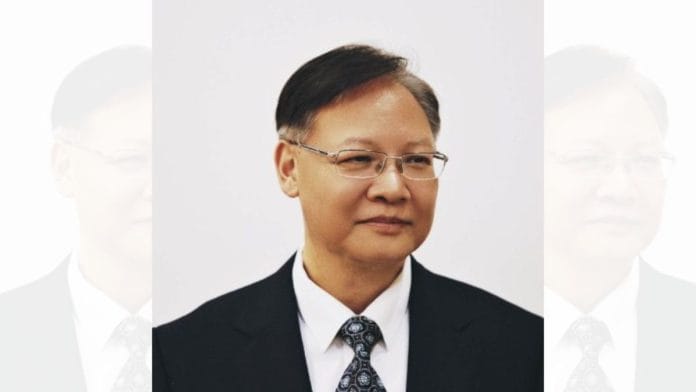New Delhi: Xu Feihong, the Chinese Ambassador to India, Saturday outlined his vision for ties between the two countries based on the principles of “five mutuals” — mutual respect, mutual understanding, mutual trust, mutual accommodation and mutual accountability. This mirrored the “Five Principles of Peaceful Coexistence”, or Panchsheel, first elaborated by New Delhi and Beijing in 1954.
“China-India relations have become one of the most important bilateral relations. President Xi Jinping and Prime Minister Narendra Modi attach great importance to China-India relations, and have reached an important consensus that China and India are not rivals or threats to each other, but are partners in cooperation and development opportunities,” Xu wrote in an article published by The Hindu.
“The ‘Five Mutuals’ provide a significant path for us to implement the above consensus. They should also be the guiding principles for the two big neighbours to get along well. Against the backdrop of profound changes unseen in a century, I believe that the ‘Five Mutuals’ are conducive to bring China-India relations back to a stable and sound track,” Xu added.
Ties between New Delhi and Beijing, according to Indian External Affairs Minister S. Jaishankar, have “not been doing very well” since the border issues are yet to be resolved “fully.” In 2020, during the Covid-19 pandemic, China “brought very large forces” to the border with New Delhi in eastern Ladakh, which resulted in clashes between the two militaries in Galwan.
The border standoff between the two countries, now in its fourth year, has seen 30 rounds of political level discussions and at least 21 rounds of military level discussions, without a full resolution.
India has made it clear that Beijing has to “fully respect” the Line of Actual Control (LAC) for any return to normalcy in political ties — a message Jaishankar gave Chinese counterpart Wang Yi twice in person in July.
The Indian foreign minister has offered his own “three mutuals” as a means to restore ties between New Delhi and Beijing — mutual respect, mutual interest and mutual sensitivity.
Also read: As trade grows, India warns SMEs to avoid getting ripped off in China — ‘adopt adequate precaution’
Five mutuals proposed by Beijing
For ambassador Xu, implementing the “five mutuals” could help “forge a right path” for India and China to “coexist in harmony” and “develop hand in hand”. The idea of mutual respect is common between the two differing principles proposed by the two foreign ministers to help return ties to normalcy.
“Mutual respect is the prerequisite for the development of China-India relations…In the new era, it is of even greater significance for us to view each other with an open mind, respect each other’s development path, social system and role on the world stage, and jointly promote development and prosperity of the two countries, the region and the world,” Xu said in The Hindu article.
“Mutual understanding is the basis of the development of China-India relations…Meanwhile, when I interacted with the Indian people, I found that the exchanges and understanding between us are not enough. We need to further promote dialogue and communication at all levels in various fields,” the ambassador added.
However, the key mutual, suggested by the Chinese ambassador, is “mutual trust.” Here, he makes it clear that India and China are not “rivals or threats” but “partners” — echoing the Bali Consensus that the Chinese foreign ministry claims was agreed to between the Indian Prime Minister Narendra Modi and the Chinese Prime Minister Xi Jinping on the sidelines of the G20 Summit held in Indonesia in 2022.
Beijing’s formulation of the consensus is that the two countries do not pose a threat to one another and are each other’s development opportunity, as reported by ThePrint earlier.
(Edited by Radifah Kabir)
Also read: Sri Lanka finalises key debt restructuring deal with bilateral lenders, India plays critical role






